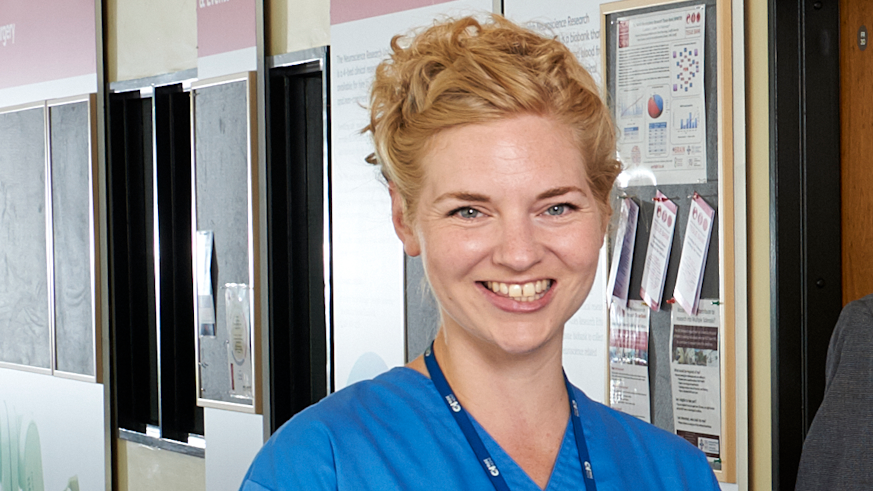Clinical trial is the first of its kind
19 December 2017

The Huntington's Disease Research Centre has seen the completion of an early phase clinical trial in Huntington’s disease.
The trial sponsor, Ionis Pharmaceuticals, partnered with Roche, developed this first in-man, multiple ascending dose trial in HD to evaluate the safety of a huntingtin lowering compound in patients in the early stages of the disease.
Rebecca Cousins, HD research nurse at the Centre, explains: “This is part of a joint collaboration between Cardiff University and Cardiff and Vale University Health Board, and it is the only site in Wales to recruit and deliver this type of disease-modifying therapy.
"The therapy specifically targets the formation of the huntingtin gene, which is clinically indicative of HD. Small pieces of RNA, called anti-sense oligonucleotides (ASOs) latch onto the huntingtin gene, interrupting the process by which it creates its protein message; this means that the gene is unable to function."
What is Huntington's disease?
Huntington’s disease (HD) is a neurodegenerative, genetic condition, characterised by the inheritance of a faulty gene - the huntingtin gene.
Motor, cognitive and psychiatric symptoms are all typical of HD, with all of these symptoms progressively worsening over time. Due to the genetic nature of the disease, there is a 50% chance that the gene which causes the disease will be passed from parent to child.
The gene can be passed on from either parent (male or female) and a positive test result for the faulty gene is confirmed through a blood test. HD is clinically diagnosed through genetic testing and the onset of motor symptoms, which can typically occur anytime between the ages of 30-50. However, there have been some rare cases of juvenile onset HD and in some people the symptoms don’t present until late 60’s.
It is estimated to affect 12 in 100,000 people and approximately 250 people are clinically affected in South Wales, with potentially hundreds more at risk of developing the disease.
Although there are medications available to control certain symptoms, such as depression and sleeping problems, there is currently no cure for the disease.
Trial 'breatkthrough'
The initial trial successfully recruited 46 participants, with early results being described as 'the biggest breakthrough in neurodegenerative diseases for 50 years'.
Rebecca added "Based on the results collected so far, the study was approved for an extension in June 2017. As a team, we're excited by the encouraging results of this therapy to date and look forward to seeing how this trial develops in the future".
This trial was recently covered in Issue 3 of @ResearchWales.
